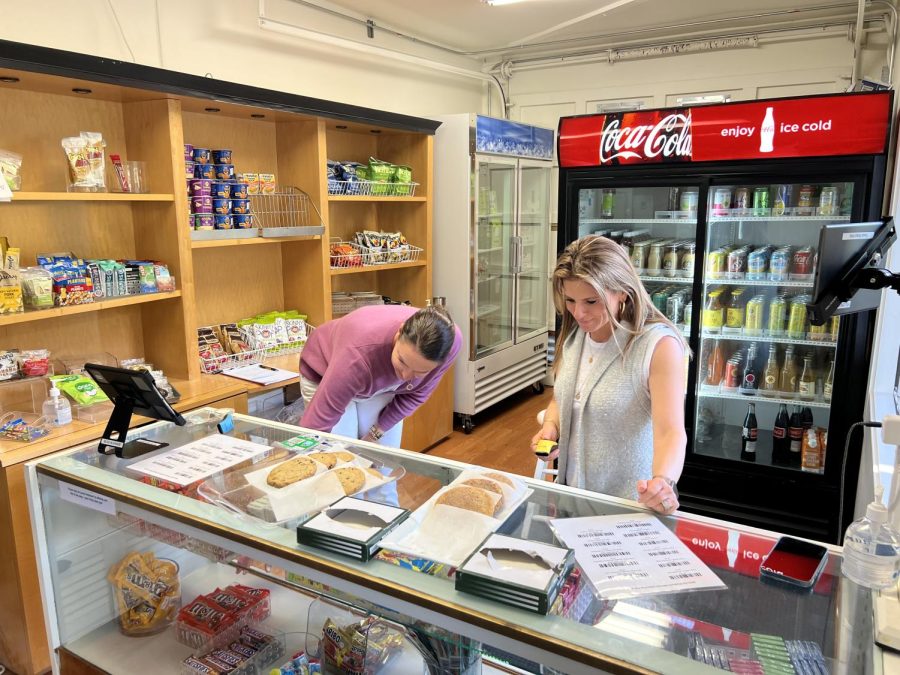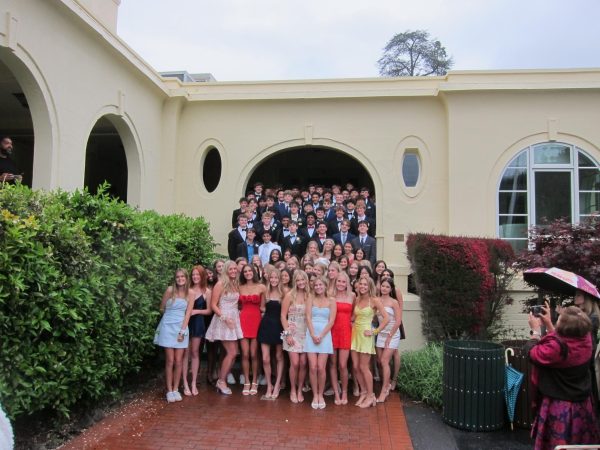Trash issues could force Snack Shack to close
Parents volunteer at the Snack Shack, March 30, 2022. The Student Senate has decided to close the store after spring break if trash conditions do not improve.
March 30, 2022
Littering has become a growing subject matter over the past few months at Branson, and if things don’t get better soon, students could see big consequences.
Since the beginning of the year, numerous actions have been taken to try to reduce and ultimately solve the issue of littering. But the latest initiative guided by student leadership surrounding littering comes from the Student Senate.
Assuming the littering on campus does not improve over the next few weeks before the start of spring break, their decision, confirmed by a dean March 30, will temporarily close the Snack Shack, and potentially the gym as well.
If no progress is made, the Snack Shack will be shut down starting the week students return from spring break in April, and the closing will only last a week with hopes that students will now have an incentive to pick up after themselves.
Only reopening on Jan. 3 after being shut down for over a year due to COVID-19, the Snack Shack and its closing could result in a larger impact on student life and involvement in cleaning up campus. However, if students don’t begin picking up their trash and no progress is made, students could expect the closing to be extended.
Many students have become very attached to the Snack Shack since its reopening, and visiting it has become a staple of their daily routines. Lillie Lehman, a sophomore, called the upcoming closing a “letdown.”
“For a lot of the sophomores that didn’t have it last year, it was really nice to have some of the normal things that Branson used to have back.”
Despite earlier warnings from school leaders, students appeared to be caught off guard by the news. Lehman said she was “shocked” to hear about the decision.
It’s also important to know that the decision was made by students, Sophomore Dean Ellie Skewes-Cox said.
“This is a student-led initiative to try to help us change our ways and think more proactively about the trash that we have on campus and taking care of our campus.”
However, the issue of littering has persisted for several months.
School-wide emails started as early as January. The first of many emails to come came from Bruce Pruiett, the strength and conditioning coach, regarding trash seen on the field and the neighboring workout equipment.
“The way food and trash were left at the outdoor weight room is completely unacceptable,” he wrote. “This is not an area to eat snacks and is certainly not an area to leave food and food packaging out.”
One of the many examples of Branson’s efforts to prevent littering includes the temporary closing of the gym. The school closed the gym due to the growing amount of trash and garbage on campus, often coming from lunch and students failing to throw away their trash.
“It really was a shame and disappointing not being able to use the gym,” Will Beere, a sophomore, said. “But I understand why it happened and why they decided to close it.”
Some students have also taken to email. On Feb. 11, senior Lucas Segal addressed the entire school in an email titled “SMH” regarding his disappointment in his fellow students around littering.
“We are not upholding our community values of Courage, Kindness, Honor, and Purpose, nor are we creating a beloved community, by leaving our trash all over the place,” Segal wrote, introducing an Instagram account dedicated to preventing littering.
Only one week later, on Feb. 18, all students participated in an advisory cleanup. Each advisory was given a designated spot on campus to clean up.
In an email, Student Body Co-President Luke Tusher also warned students that “if the trash problem continues we will unfortunately have to start closing down the field and snack shack.”
Although the cleanup seemed to briefly clean the campus, it didn’t stay that way for long.
“I feel like things look the same now,” Noah Metzger, a freshman, said after a week. “I don’t really think much has changed, and things honestly may even be worse than how school was before we did it.”
So far, the actions have seemed to not have as big of an impact as people had hoped they would, Dean of Student Life Sabrina Wilson said.
“No, unfortunately I do not think we have improved the situation,” she said. “We’ve seen brief periods of improvement in reaction to specific measures, but they have not changed behaviors in any significant way.
“Sadly, this problem is not a new one and pre-dates COVID. We instituted the weekly clean-up responsibilities by advisories a few years ago, but I think it is a very imperfect solution because it does not encourage people to take responsibility for their own actions.”
She remains optimistic, however, as she says, “I do expect to see more schoolwide measures that I hope will come from student leadership.”





Cameron Aryanpour • Mar 31, 2022 at 2:52 pm
Great journalism, William!